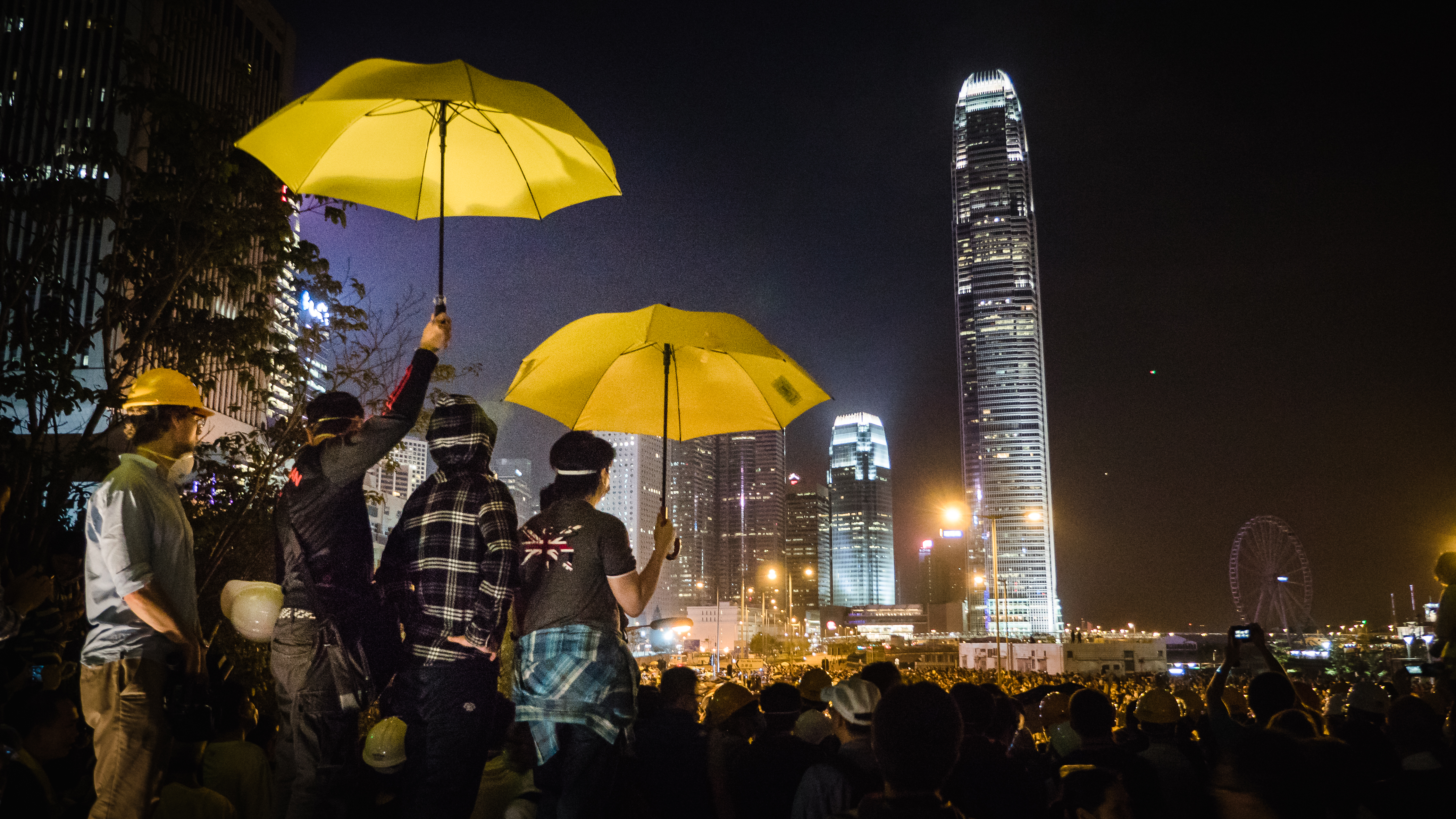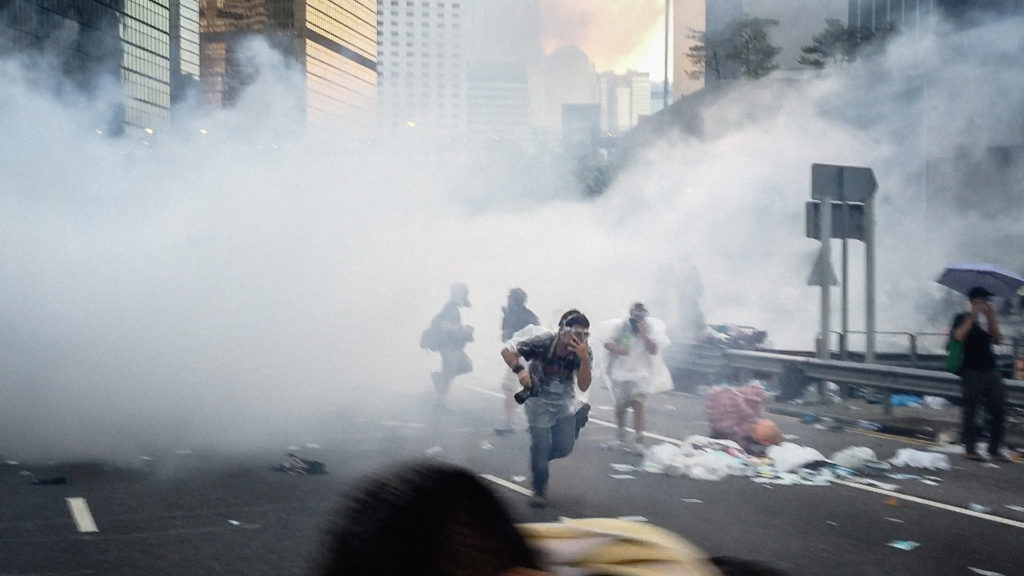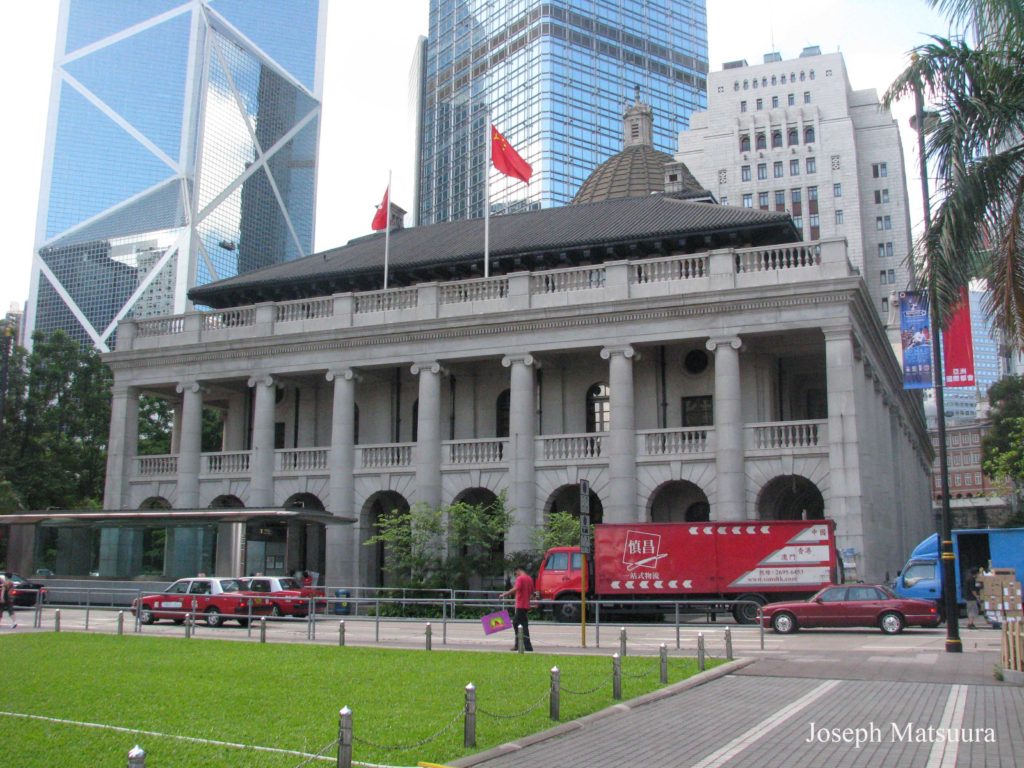One Country…Two Systems? A Question of Autonomy in Hong Kong

On September 20th of 2017, the Chief Executive of Hong Kong Carrie Lam pushed for an end to the claims of independence at Belt and Road Summit in Hong Kong. She claims that the question of independence and the persistent resistance from China would sever the relationship between Hong Kong and the mainland. Thus, maintaining some autonomy whilst upholding healthy diplomatic relations continues to be a precarious balancing act for Hong Kong.
Hong Kong and China have shared an interesting relationship, albeit strained, only resuming after a 99-year hiatus with Britain’s transfer of power agreement to China. This dates back to 1997, when Britain and China made a deal wherein Hong Kong was to be ceded to China for 50 years thereafter. This pledged China to uphold the constitutional principle of ‘One Country, Two Systems’, which establishes the regional autonomy of Hong Kong as a ‘Special Administrative Region’ (or S.A.R) under the People’s Republic of China.
20 years later, this year’s celebrations on July 1st marked the anniversary of the S.A.R since the handover. However, the status of Hong Kong’s autonomy is becoming questionable. Political party activity and dialogue about the future of Hong Kong’s autonomy has been on the rise ever since the break out of the democracy protests in 2014, which culminated in a 79-day sit-in called Occupy Central, freezing the major roads of the financial centre in 2014. With that being said, the tensions between the former British colony and the PRC are running high.

Even more recently, the Department of Justice in Hong Kong sought an appeal to impose harsher sentences for Joshua Wong, Nathan Law, and Alan Chow, three political activists in Hong Kong. Of the three, two are leaders of the youth political group Demosisto and the other a former student union leader. They were the key activists and leaders of the Occupy movement and are facing prosecution over charges of inciting, and participation in, unlawful assembly. Initially, they were sentenced to community service as punishment, but now are facing an appeal for harsher sentences by the prosecution.
Is this the beginning of the end of Hong Kong’s regional autonomy under party rule? I decided to talk to Jeffrey Ngo, who has been extensively involved with the solidarity movements in New York for democracy in Hong Kong. Ngo has been very vocal for the democracy movement in Hong Kong, and took some time to answer some questions regarding its current political state. He is also currently the chief research for Demosisto and has previously campaigned for Nathan Law’s seat on the legislative council.
Jacklyn Chan: What are your thoughts on the overturning of the activists’ previous sentences in appeal for harsher jail sentences by Hong Kong’s Department of Justice?
“I think that it is an unfair decision and it reflects how, without fair democracy, just how hard the rule of law is to maintain in Hong Kong,” Ngo says.
“The trio has made it clear they do not regret their unlawful actions, as part of their civil disobedience campaign.” Ngo claims that the original judge had in fact accounted for their motives and recognised that jail terms would not prevent their future participation in the civil disobedience campaigns. Controversially, the appeal came from Rimsky Yuen, the Secretary of Justice for former Chief Executive Chung Yin Leung, who overruled the prosecutor’s consensus in appealing for a harsher sentence. Yuen had actually stayed on the cabinet for current CE Carrie Lam, causing a controversy over the nature of the ‘elected’ cabinet as they were not appointed democratically by Hong Kong citizens.
Ngo thinks that “this is an unfair intervention in the rule of law”, citing the political motivations behind the appeal. The imprisonment of these activists does not just put a pause on their political activity for the next few months. Rather, it also has implications for the operations of Hong Kong’s democratically elected legislative council. “The jail terms effectively disqualify the activists’ eligibility to run for elected office for the next 5 years”, Ngo says.
JC: What are the ways in which you see Hong Kong’s autonomy and its freedoms coming under threat?
“One of the clearest examples of which suggests the erosion of Hong Kong’s autonomy is the way in which Rimsky Yuen was able to overrule the decision of the prosecutors in the case of the three political activists”, Ngo says.
However, besides the jail terms for Hong Kong’s prominent activists, six Hong Kong lawmakers, including Nathan Law himself, were similarly disqualified from their elected positions due to an oath-taking controversy in the previous year. The controversy emerged from a series of events that surrounded the oaths of office of pro-democracy members. This included two oath-takers from the political party Youngspiration, who won the council seat but were unable to assume office.
The disqualification of the lawmakers is “no less threatening to Hong Kong’s freedom and autonomy”, Ngo says. The legitimacy of their disqualification came from claims that the oath-taking in question came from their “‘incompleteness and insincerity’”- which was invalidated by both Legislative Council members, Kenneth Chen and Andrew Leung.
This lead to the National People’s Congress Standing Committee (NPCSC) to declare, on November 7th, 2016, a re-interpretation of Article 104 of Hong Kong’s Basic Law. It was amended to ‘clarify’ Hong Kong legislators’ allegiance to Beijing. As a consequence, a total of four elected candidates were barred from their legislative council seats.

Ngo, however, claims that this is an issue because “the problem is that we have an undemocratic government, making the decisions about the function and procedures of a democratically run council in Hong Kong”. Thus, the invasion of autonomy can now “punish those who deviate from a solid support of mainland loyalty”.
JC: As an activist, how necessary do you think international support and recognition is for the democratic movement in Hong Kong?
“I think that international support is vital to the democracy movement in Hong Kong. In fact, Demosisto was established with the goal of Hong Kong achieving self-determination by 2047” (which also marks the end of the 50 year guarantee of Hong Kong’s autonomy arrangement).
A concern lies in what will happen beyond 2047, when the 50-year guarantee of Hong Kong’s autonomy is up. In fact, the President of China, Xi Jinping, has shown indifference to the deal through his hard-line stance regarding Hong Kong politics. Ngo predicts that Beijing will be focusing its resources to prevent losing Hong Kong from Chinese control in the international area, which we can see from the increasing efforts to prevent further autonomy grants to Hong Kong. Thus, it is important that there is international support. “We need powerful countries such as the United States and the United Kingdown to stand against China,” Ngo says. He claims that it should follow in their interests to uphold support for democracy. “The UK also faces a moral obligation to stand up for the rights of Hong Kongers” argued Ngo, as it has been clear that China “has breached the obligations pledged by them under the 50 year autonomy arrangement.”
Ngo has had the chance to meet with government officials such as senator Marco Rubio and Tom Cotton from the Republican Party, as well as Nancy Pelosi from the Democratic Party. The well-known politicians have also recently issued statements against the imprisonment of the democracy activists in Hong Kong. “I think that there are people across the political spectrum that do care about the state of Hong Kong’s autonomy,” said Ngo. “In fact, it is up to us and our work to ensure that more and more people are aware of the situation”.
Lastly, Ngo thinks that “silence is the biggest threat for the status of HK autonomy. If Beijing believes that it may not face backlash or international repercussions, then there is nothing that will stop them from encroaching on Hong Kong’s independence.”
However, the future of Hong Kong’s autonomy remains uncertain. As we mark the third year since the outbreak of the democracy protests on September 26th, 2014, the relationship with the mainland remains rocky. The central Chinese government has acknowledged the unrest, but has refused to make concessions to it. The current state of Hong Kong’s territorial autonomy has experienced, to a certain extent, some compromise in its guaranteed freedom, but still remains largely intact. For now, Hong Kong citizens can still enjoy the separation of its political and economic systems, but with the rapid development of political conflict within Hong Kong and between China, little can be said about what remains after 2047.
Edited by Arnavi Mehta
